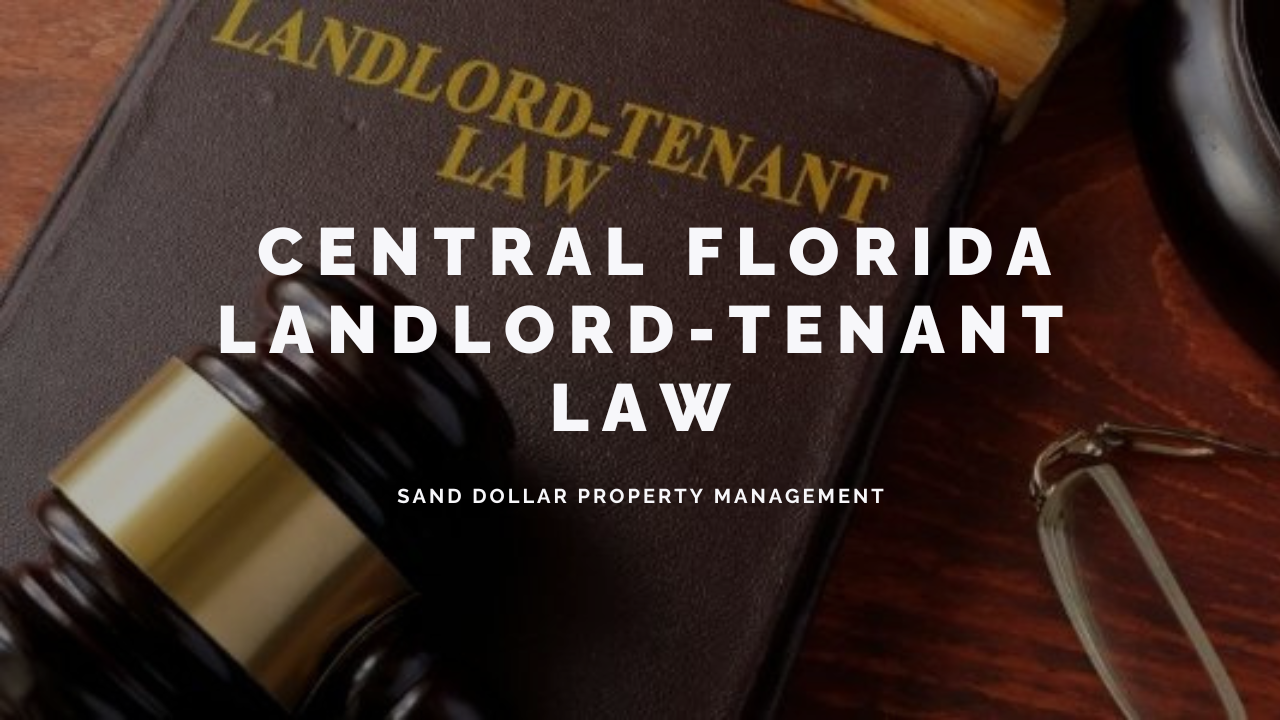Are you a Florida landlord who is just getting started? Or perhaps you're an experienced landlord with a sizable collection of investments? Regardless of where you are in your landlord career, you must stay current on Florida laws. The legal obligations and rights of both landlords and tenants are described in this legislation.
It is essential for landlords to understand their legal obligations and when they must give notice to their tenants. It will not only guarantee smooth tenancies but also save you from having to go to court with your tenant.
Read on to learn more about the landlord-tenant laws in Florida.
Required Landlord Disclosures in Florida
Landlords are required by federal, state, and local legislation to provide their tenants with specific disclosures. You’ll need to do this in a written format, either within the lease agreement or a separate document.
The following are some of the disclosures.
- Lead-Based Paint: Landlords are required by federal law to advise tenants about the potential hazards associated with lead-based paint in properties constructed before 1978.
- Licensed Authorities: The names and addresses of all property owners must be disclosed to tenants by Florida landlords. Any middlemen who are authorized to act on behalf of that property owner must also be disclosed.
- Security Deposit Storage: Landlords who lease five or more units are required to give a disclosure that includes details like where the security deposit will be kept and if the tenant is eligible for interest.

- Radon Gas: Whether or not radon gas is present in or close to their investment rental property, Florida landlords are required to give their tenants information about the gas. The state's prescribed language outlining the dangers and characteristics of radon gas must be included in this declaration.
Florida Tenant Rights & Responsibilities
Florida law grants tenants certain rights that landlords must uphold during the lease duration. These exist regardless of what the lease may say. Some of their rights include:
- Right to Habitable Premises: Landlords must maintain rental properties in a habitable condition.
- Right to Privacy: Tenants are entitled to solitude in the area they rent. With the exception of emergencies, landlords are required to give sufficient warning before entering the property.
- Right to Quiet Enjoyment: Tenants are entitled to a quiet and easy rental experience, free from landlord intervention.
- Right to Repairs: Landlords are responsible for making necessary repairs to maintain the property in a habitable condition, as outlined in Florida's landlord-tenant statutes.
- Right to Non-Discrimination and Fair Housing: Landlords cannot discriminate against tenants based on protected characteristics such as race, color, national origin, religion, sex, familial status, or disability.
A lease in Florida also equally grants tenants certain responsibilities after they move in. As a landlord, you can expect the tenant to:
- Pay Rent: Tenants are obligated to pay rent in accordance with the terms of the lease agreement.
- Maintain Cleanliness: Tenants must maintain the rental unit in a clean and sanitary condition.

- Report Maintenance Issues: Tenants are responsible for promptly notifying the landlord of any maintenance or repair issues that arise during their tenancy.
- Follow Lease Terms: Tenants are expected to abide by the terms of the lease agreement, including restrictions on subletting, pet ownership, and use of the premises.
Florida Landlord Rights & Responsibilities
Landlords in Florida have certain rights that are protected by law. Here's a list of some key rights that landlords typically have under Florida law:
- Right to Receive Rent: Landlords have the right to receive rent payments from tenants in accordance with the terms of the lease agreement.
- Right to Screen Tenants: As long as they go by fair housing regulations and do not discriminate against protected classes, landlords are free to screen tenants based on factors like credit history, rental history, and income level.
- Right to Enter the Property: For certain purposes, such as doing maintenance, conducting inspections, or exhibiting the property to potential tenants or buyers, landlords are permitted access to the rental property. Except in cases of emergency, they must, however, provide the tenant adequate warning, usually 12 to 24 hours in advance.
- Right to Evict for Nonpayment or Violation of Lease: Landlords have the right to evict tenants who fail to pay rent or violate the terms of the lease agreement, subject to the eviction process outlined in Florida law.
Landlord responsibilities in Florida include the following.
- Maintaining Habitability: Landlords are responsible for maintaining rental properties in a habitable condition, including ensuring compliance with building and safety codes, providing essential utilities such as water and heat, and making necessary repairs to keep the premises safe and functional.

- Providing Safe Conditions: Landlords must ensure that rental properties are safe for tenants and visitors, including addressing hazards such as mold, lead paint, and structural defects.
- Respecting Tenant Privacy: Landlords must respect the privacy of tenants and provide advance notice before entering the rental property, except in cases of emergency or with tenant consent.
- Enforcing Lease Terms: Landlords are responsible for enforcing the terms of the lease agreement, including rules regarding rent payments, maintenance responsibilities, and restrictions on tenant behavior.
- Handling Security Deposits Properly: Landlords must collect and handle security deposits in accordance with Florida law, including providing tenants with written notice of the terms and conditions for withholding all or part of the deposit for damages beyond normal wear and tear.
Overview of Landlord-Tenant Laws in Florida
In Florida, landlord-tenant laws govern the rights and responsibilities of both landlords and tenants in rental agreements.
Here's an overview of key aspects of landlord-tenant laws in Florida:
- Lease Agreements: Lease agreements can be oral or written, but written leases are strongly recommended to avoid misunderstandings. The lease should include details such as rent amount, payment due dates, security deposit information, and rules regarding the use and maintenance of the property.

- Tenant Privacy: Landlords must provide reasonable notice before entering the rental property, typically 12 to 24 hours, except in emergencies. Tenants have the right to privacy and the peaceful enjoyment of their rented space.
- Rent Payments: Rent is typically due on the date specified in the lease agreement. Landlords are not obligated to provide a grace period unless the lease states otherwise.
- Termination of Tenancy: Both landlords and tenants have the right to terminate a lease agreement with proper notice. The notice period varies depending on the type of tenancy and whether there are specific provisions in the lease agreement.
- Retaliation: Landlords cannot retaliate against tenants for exercising their legal rights, such as requesting repairs or reporting code violations.
Conclusion
Maintaining a positive tenant-landlord relationship is vital for Florida landlords, and this requires being well-versed in the state's regulations. Their purpose is to safeguard both the tenant and the landlord. It can be stressful, nevertheless, to stay current on Florida statutes and legal modifications!
Contact Sand Dollar Property Management today to learn more about landlord-tenant laws and how we can help ensure you always stay compliant!
Disclaimer: Please note that the information provided in this blog is intended for general guidance and should not be considered as a replacement for professional legal advice. It is important to be aware that laws pertaining to property management may change, rendering this information outdated by the time you read it.











